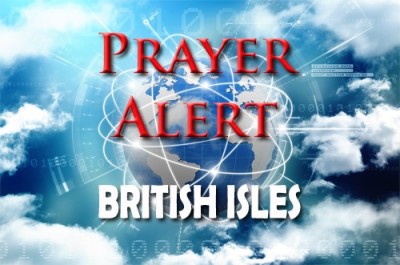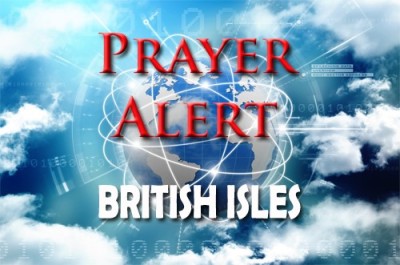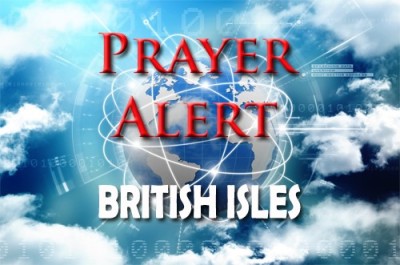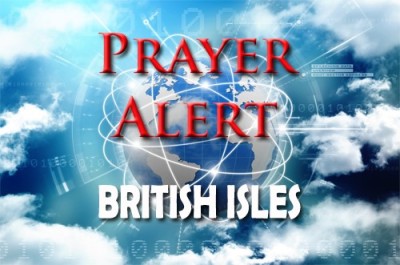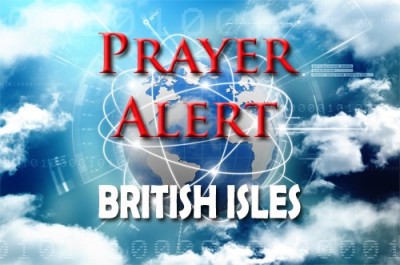Jesus helped supersonic pilot see world anew
12 Jun 2025Captain Brian Walpole, once commander of British Airways’ Concorde fleet and recipient of an OBE, has enjoyed an extraordinary aviation career. From RAF training to piloting over 800 supersonic transatlantic flights at 1,350mph, he experienced the awe of seeing the earth’s curvature at 60,000 feet. Yet it wasn’t until his late forties that he truly began to see not just the world, but the Creator behind it. A dinner conversation led him to Guildford Baptist Church, where a long journey of scientific and spiritual enquiry began. Influenced by Josh McDowell’s Evidence That Demands a Verdict, Brian was convinced of Jesus’ resurrection and the truth of the gospel. While his own conversion was gradual, his wife Rosemary had a dramatic encounter with the Holy Spirit, and their daughter Shelley went on to serve in ministry in Canada. Now in his nineties, Brian continues to testify that no human accomplishment compares to knowing Christ. His story is a powerful reminder that eternal truth outshines earthly success.
A new partnership between CURE International and Biblica is set to distribute over 87,000 Bibles in 22 languages to families receiving free surgical care at children’s hospitals across Africa and the Philippines. These hospitals, run by CURE, offer operations for conditions like spina bifida and hydrocephalus. The initiative brings physical healing and spiritual hope, rooted in CURE’s founding mission inspired by Luke 9:2 - to preach the Kingdom of God and heal the sick. CURE has performed over 330,000 surgeries and shared the Gospel with over 2.1 million people since 1996. Biblica’s role is to ensure Scripture is available in the heart languages of the patients. The collaboration addresses deep spiritual and cultural challenges, including widespread beliefs in curses and witchcraft surrounding disability. Through intentional ministry, Bible distribution, and community connections with local pastors, CURE is seeing lives transformed as parents witness healing and turn to faith. This $500,000 effort is a striking example of Kingdom collaboration bringing the light of Christ to the most vulnerable.
Reeves presents her spending review
12 Jun 2025Rachel Reeves’ new spending review represents a pivotal moment for the Labour government, aiming to launch a narrative of 'renewal' after a challenging first year. With £600 billion allocated over four years, the review balances significant capital investment with modest growth in day-to-day departmental spending. Major announcements include £14.2 billion for nuclear power at Sizewell C, £15 billion for public transport in the North and Midlands, and a new rail link between Liverpool and Manchester. An additional £113 billion in capital spending will target the government's three pillars: health, security, and the economy. However, this largesse will be offset by tighter controls on daily budgets, with unprotected departments - particularly the Home Office and local councils - facing real-term cuts. Discontent is rising over pressure to reverse disability cuts, lift the two-child benefits cap, and increase winter fuel support. While Reeves insists the rises are funded by tough tax decisions, growing public dissatisfaction may force further fiscal changes by autumn. The Government hopes visible investment projects will reassure voters and build lasting trust. Breaking news: the UK economy shrank by 0.3% in April, a worse result than expected, which Reeves has described as ‘disappointing’. See
Ballymena, County Antrim, has experienced three consecutive nights of violent unrest following a protest over an alleged sexual assault. Initially peaceful, the protest escalated into serious disorder after two teenage boys appeared in court, denying the charges via a Romanian interpreter. Demonstrations turned hostile as crowds in the Clonavon Terrace area threw petrol bombs, fireworks, bricks, and bottles at police officers. The police deployed riot control measures including baton rounds and a water cannon. Seventeen more officers were injured overnight, bringing the total to 32, and five arrests were made. Several cars were set ablaze, and windows of local homes were smashed. Police have described the violence as 'racist thuggery’, suggesting that ethnic tensions had contributed to the escalation. Authorities are calling for calm amid concerns about further disturbances and are urging communities to reject hatred and violence. Update: on the third night a leisure centre in Larne was set on fire.
Rachel Reeves has confirmed a £14.2bn investment for the new Sizewell C nuclear power station in Suffolk, projected to begin supplying power by the mid-2030s. She hailed it as the dawn of a 'new era of nuclear power’, with the plant expected to power six million homes and create thousands of construction jobs. Keir Starmer emphasised fiscal caution, warning there will be no 'blank cheque' for the decade-long project, with the current funding covering only four years The plant, to be built by EDF, sits on an existing nuclear site and comes amid efforts to replace Britain’s ageing nuclear infrastructure. The government also announced a £2.5bn programme for small modular reactors (SMRs), touted as quicker to build and better suited for decentralised energy needs. Though some locals welcome the investment, others decry environmental destruction near the RSPB Minsmere reserve. The Scottish government remains opposed to new nuclear developments. The overall goal is to expand UK nuclear capacity to around 24GW by 2050 to secure clean and reliable electricity.
The Wildlife Trusts have challenged claims made during a recent Commons debate on the Planning and Infrastructure Bill, accusing ministers of misrepresenting the impact of environmental protections on housing development. Housing minister Matthew Pennycook suggested that safeguards like nutrient neutrality were obstructing housebuilding. However, a growing weight of evidence indicates otherwise. For example, a recent survey of 500 councillors found environmental issues ranked 20th among 24 causes of delay; skills shortages in the building sector and developer land banking were much more significant. Evidence also shows that irreplaceable habitats are at risk due to proposed changes in part 3 of the bill, which would weaken the habitats regulations by introducing a more subjective 'overall improvement test.' The Office for Environmental Protection warns this could allow harmful developments in ancient woodlands and other vital habitats. Despite over 30,000 public emails to MPs and cross-party concerns, the Government has not committed to full revisions. The Wildlife Trusts are urging ministers to abandon unfounded claims about environmental 'blockers' and adopt a more evidence-based approach that balances housing needs with robust nature protection.
The NHS is planning a major expansion of robotic-assisted surgery to improve treatment times and patient outcomes. Currently, one in five keyhole surgeries is robot-assisted, but NHS England projects this will rise to 90% by 2035, with procedures increasing from 70,000 annually to around 500,000 over the next decade. Health secretary Wes Streeting, himself a kidney cancer survivor who benefited from robotic surgery, highlighted the potential of such technologies to transform healthcare delivery. Robot-assisted surgery enables greater precision, faster recovery, and shorter hospital stays. Surgeons operate using a console linked to robotic instruments and cameras, with some orthopaedic surgeries already partially automated. NHS leaders stress that embracing innovation, including robotics, AI, and data research, is essential to meet targets like reducing elective waiting times by 2029. John McGrath, chair of the NHSE robotic surgery committee, added that efficient use of robotic surgery could ease system-wide pressure. The initiative aligns with broader efforts to modernise the NHS and deliver faster, more effective care to patients across multiple medical fields.
Austria has declared three days of national mourning after a 21-year-old former student fatally shot eight pupils and a teacher at his old high school in Graz, later taking his own life. A tenth victim, critically injured, has since died, and eleven others remain in hospital. Austria’s chancellor, Christian Stocker, called it a ‘national tragedy’, and the president said, ‘What happened today … strikes our country at the heart. These were young people who had their whole lives ahead of them.’ The gunman, armed with legally owned firearms, opened fire in two classrooms. His motive remains unclear as the investigation continues. Mass shootings are rare in Austria, even though the nation has one of Europe’s highest civilian gun ownership rates. In response to the tragedy, crisis teams are supporting affected families and the community. The mayor of Vienna stressed that hate and violence must not prevail, and European leaders have expressed deep sorrow and sympathy.


